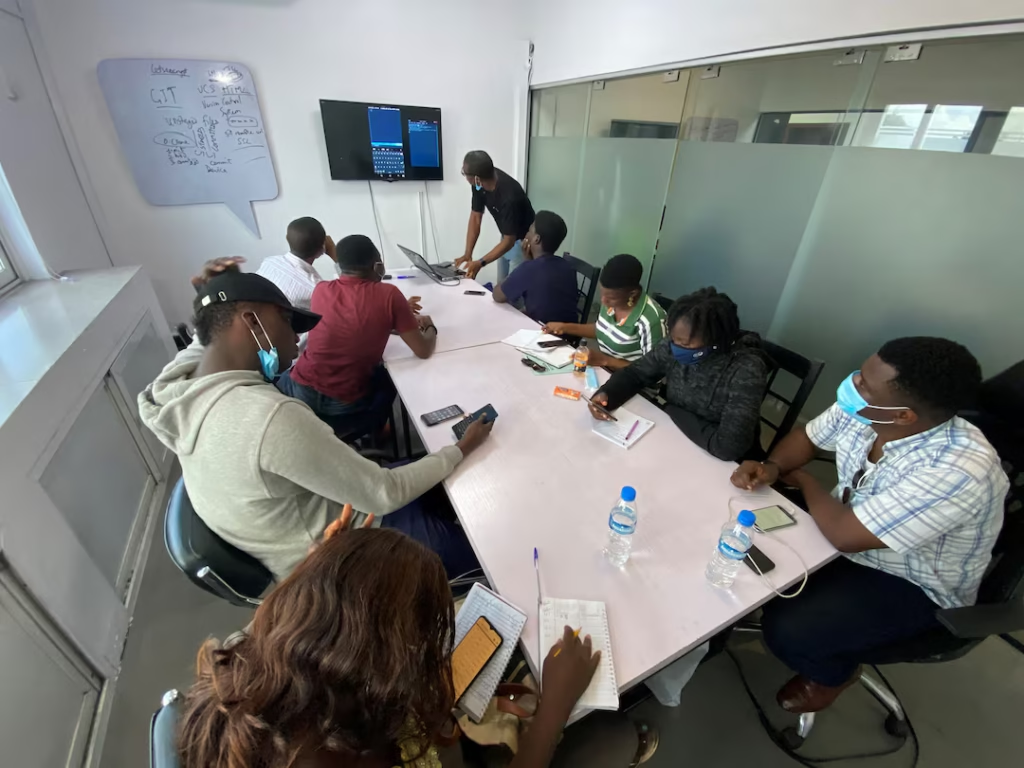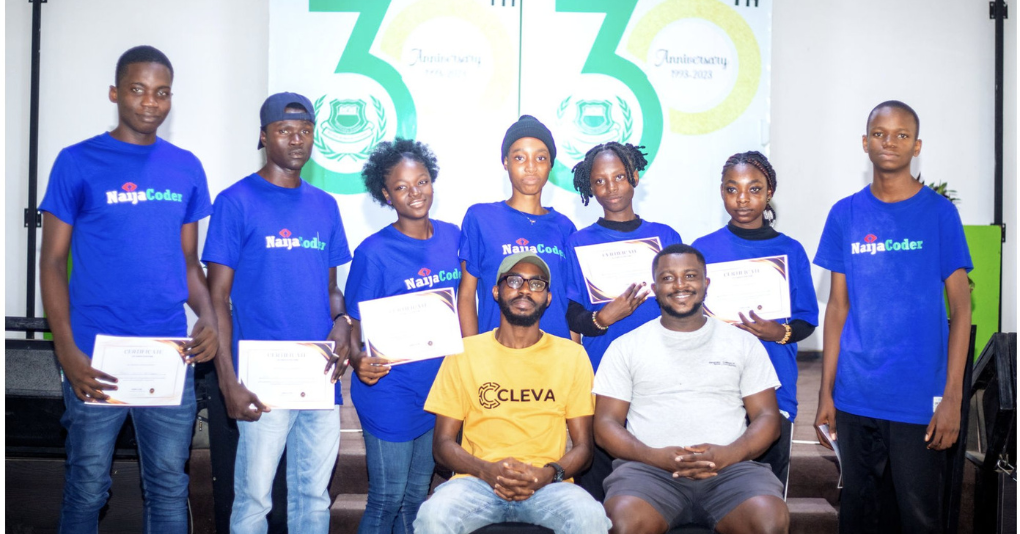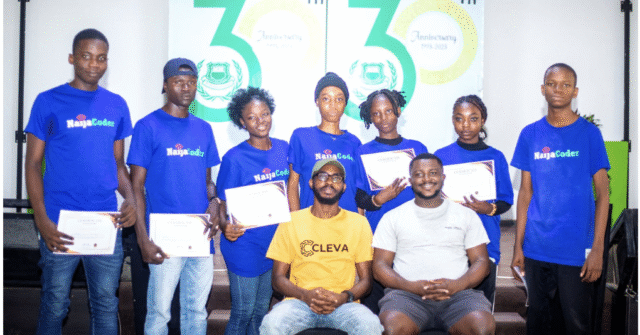Imagine a classroom bustling with curiosity, laptops humming, and teenagers diving deep into the logic of algorithms—all happening in regions where reliable power and internet access are luxuries. This is the stage for NaijaCoder, a trailblazing initiative teaching high school students in Nigeria the fundamentals of algorithmic thinking and programming. With an innovative, hands-on approach, NaijaCoder is bridging an educational chasm and planting seeds for future tech innovators across the Global South.
Table of Contents
Why Algorithmic Thinking Matters—Especially in Nigeria
For many young Nigerians, exposure to computer science—especially the foundations of algorithms—is often missing from school curricula. Yet, the technical skills that accompany algorithmic literacy open doors. Beyond preparing students for programming careers, these skills sharpen critical thinking and problem-solving, core competencies in a rapidly digitising world. For teens from low-income families, the stakes are higher: this knowledge can define their economic trajectory and empower them to break cycles of poverty. NaijaCoder recognises this and seeks to offer an accessible, high-impact pathway.
Introducing NaijaCoder: A Summer Program with Purpose
Founded by a coalition of educators and technologists, including Daniel Alabi, Atinuke Adegbile, Lekan Afuye, Philip Abel, and Alida Monaco, NaijaCoder launched a free, intensive summer camp designed specifically for Nigerian high school students. The program emphasises not just syntax and code, but the deeper art of algorithmic thinking: how to break down problems, understand flow, and design solutions—the kind of rigorous foundation that lasts.

Tailoring to the Realities of the Global South
Rolling out a computer science program in places where frequent power outages, spotty internet, and fluctuating costs disrupt learning isn’t straightforward. NaijaCoder’s curriculum was purpose-built for resilience:
- Hands-on, offline exercises: Activities don’t rely on continuous internet, making them practical in low-connectivity zones.
- Flexible, low-spec hardware: The platform works even on modest school computers or recovered laptops and smartphones.
- Thoughtful pacing and repetition: Lessons are structured to reinforce core concepts, accommodating interruptions and reboots.
These design choices reflect a participatory approach, shaped by the experiences and input of the students themselves.
Co-Designing with Teens: A Participatory Model
What sets NaijaCoder apart is its commitment to participatory design. From the outset, students were not passive recipients—they were co-creators. Through surveys and feedback forms, the program incorporated student voices, iterating on material that resonated and discarding what didn’t. This democratic approach ensures that the curriculum isn’t just designed for teens—it’s shaped with them.

Curriculum Highlights: From Concept to Code
Here are some of the standout features of the NaijaCoder program:
- Core Algorithms Simplified
- Students explore step-by-step strategies: sorting, searching, and conditionals—concepts foundational to programming, taught in digestible, everyday language.
- Problem-Solving through Projects
- More than lectures, campers learned by doing: solving logic puzzles, designing decision trees, and implementing basic functions that adjust real data.
- Offline Challenges
- Even when the internet fails, learning continues. Puzzles drawn on paper, pseudo-code exercises, unplugged activities—designed for tech-lite environments.
- Peer-Learning & Mentorship
- Small groups foster collaboration. Senior students and facilitators mentor newcomers, modelling algorithmic thinking as a shared, social process.
- Feedback Rhythms
- Daily feedback loops through quick polls and informal discussions allowed continuous refinement of instruction and pacing.
Student Voices: Transformation in Progress
Though formal results aren’t yet published, early feedback tells a powerful story. Students report a sharp rise in confidence when approaching problems algorithmically. One student remarked (paraphrased): “I used to see programming as magic; now I can break it down myself.”
These reflections affirm that learning logic isn’t limited to coding—it’s a mental habit. When teens understand how to decompose challenges, they apply it beyond the screen—across math, science, and even real-life problem-solving.
Challenges and Learnings: Building a Sustainable Model
NaijaCoder has navigated significant hurdles:
- Electric power interruptions remain a disruptor despite offline-ready tools.
- Limited hardware availability often constrained classroom capacity.
- Language and foundational math gaps meant facilitators sometimes had to backtrack before teaching core algorithmic ideas.
However, these challenges fueled adaptation: extending sessions when power failed, redistributing hardware, and integrating foundational math mini-modules. These shifts are informed directly by student feedback—part of the iterative design ethos.
Looking Ahead: From Summer Camp to Curriculum Transformation
NaijaCoder’s successes offer a template for broader change—here’s the path forward:
- Scaling Across Nigeria (and Beyond)
- Pilots in Abuja and Lagos are stepping stones. The team hopes to expand to other states and eventually partner with regional education ministries.
- Open-Source Materials
- All notes and curricula are being released publicly, allowing teachers, parents, and NGOs to adopt and adapt locally.
- Teacher Training Programs
- Workshops aim to empower educators across Nigeria to embed algorithmic thinking into everyday lessons, from physics experiments to literature analysis.
- Monitoring Learning Outcomes
- Formal impact studies are planned to track gains in computational aptitude, logical reasoning, and problem-solving capabilities.
- Community Building
- Alumni networks, hackathons, and regular meetups will sustain momentum and nurture ongoing learning and collaboration.
Broader Implications: Algorithms as a Global Equaliser
When taught thoughtfully, algorithmic thinking can be a great equaliser. It dismantles the exclusivity of the tech world and builds mental frameworks that apply everywhere. NaijaCoder demonstrates that even in resource-limited contexts, rigorous, context-aware tech education is not only possible—it’s transformative.
By embedding student agency into curriculum design, NaijaCoder also models a shift in global education: away from top-down, one-size-fits-all models toward participatory, context-sensitive learning.
Voice of the Organisers
In their own reflections, the NaijaCoder team emphasises partnership with students. They stated that curriculum design isn’t complete until learners feel ownership, and that each lesson should feel like it was “co-built” rather than delivered.

Conclusion: A New Chapter in Nigerian Education
NaijaCoder isn’t just teaching algorithms—it’s teaching possibility. Nigerian teenagers stepping into algorithmic thinking aren’t just learning code; they’re learning structure, rigour, and creative problem-solving. The initiative exemplifies how educational equity can flourish when programs stay close to the lived realities of learners, listen closely, and iterate rapidly.
As NaijaCoder grows—from localised camps to national curriculum influence—it stands as a beacon in the Global South: proof that with care, collaboration, and creativity, algorithmic thinking can power futures—even where the lights sometimes flicker.
Join our WhatsApp community
Join Our Social Media Channels:
WhatsApp: NaijaEyes
Facebook: NaijaEyes
Twitter: NaijaEyes
Instagram: NaijaEyes
TikTok: NaijaEyes








































